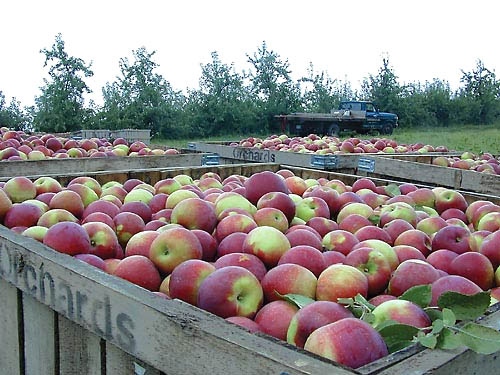
Orchard owners looking for the best answers to their questions about apple trees soon will have free, easy access to all the information they need, thanks to a land-grant university project funded by the U.S. Department of Agriculture.Videos, online courses and searchable databases will be among the resources available at eXtension.org.The resources will help increase the adoption of new and existing apple varieties and rootstocks ideal to particular regions.
November 19, 2010

Orchard owners and home gardeners looking for the best answers to their questions about apple trees soon will have free, easy access to all the information they need, thanks to a land-grant university project funded by the U.S. Department of Agriculture.
Videos, online courses and searchable databases will be among the resources available on the web via eXtension.org, according to Emily Hoover, University of Minnesota Extension horticulturist and head of the university’s horticultural sciences department. Hoover is one of the leaders of the project. The project team recently received a $496,000 USDA grant to develop the first comprehensive portal on apple cultivars and rootstocks for eXtension.org.
eXtension is an interactive online learning environment that delivers researched-based knowledge developed by the nation's land-grant university experts. University of Minnesota Extension is a major contributor to eXtension. The new eXtension portal will be named "The Community of Practice (CoP) for Apple Rootstocks and Cultivars."
Site will have descriptions, recommendations
The CoP will provide region-specific apple cultivar and rootstock descriptions and recommendations to commercial producers, nursery professionals, extension educators, master gardeners, home gardeners and consumers.
"A wealth of information regarding apple varieties and rootstocks has been amassed by researchers across the United States, Canada and Mexico over the past 30 years, but was not developed to be accessible to the public," Hoover explained. "This project will enable us to develop dynamic educational tools such as interactive maps, searchable databases, videos and online courses, creating a commons of information critical to the apple industry and the apple-growing and consuming public."
The resources will help increase the adoption of new and existing apple varieties and rootstocks ideal to particular regions. As growers increase their understanding of the importance of these choices, crop characteristics will greatly improve and, she said, the incidence and impact of industry-critical pest and disease problems will be reduced.
"Producers will have access to valuable information that will increase production efficiency and profitability over the long term and contribute to the sustainability of their operations and the industry as a whole," Hoover said. Over time, the community of practice will expand to include other apple-producing regions, additional production aspects and complementary consumer information.
The project is led by researchers at the University of Minnesota and Penn State University, with assistance from co-leaders from West Virginia University, the University of Massachusetts, University of Missouri, Cornell University, North Carolina State University and The Ohio State University.
You May Also Like



